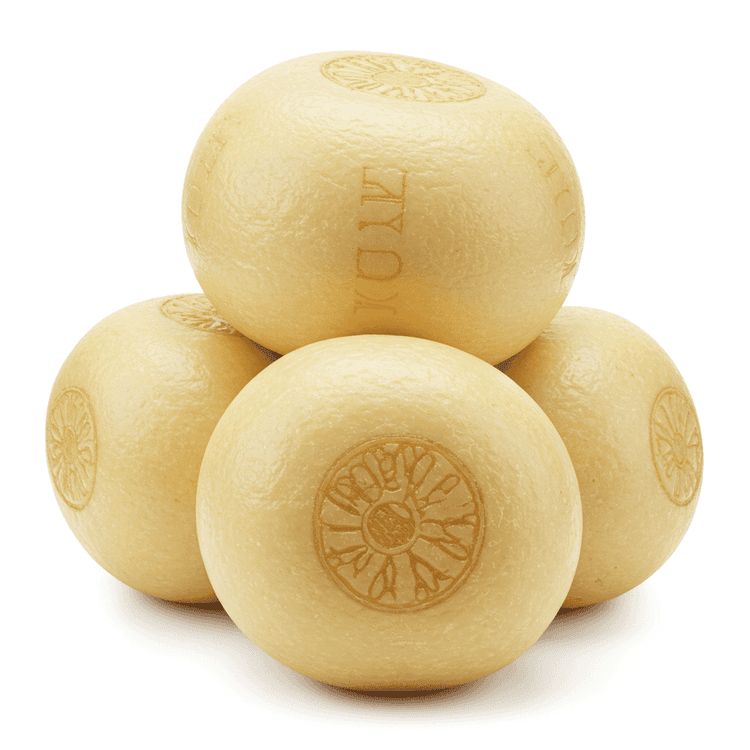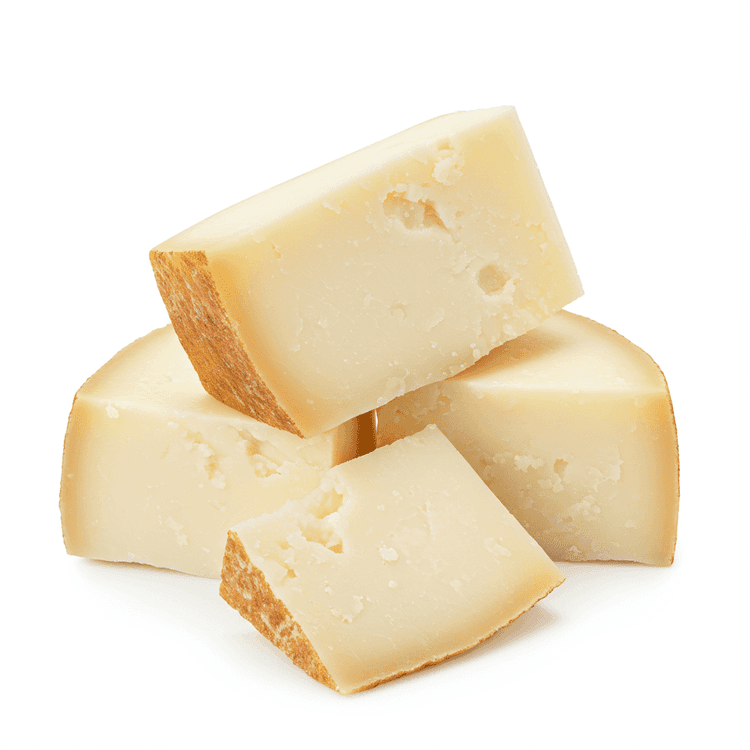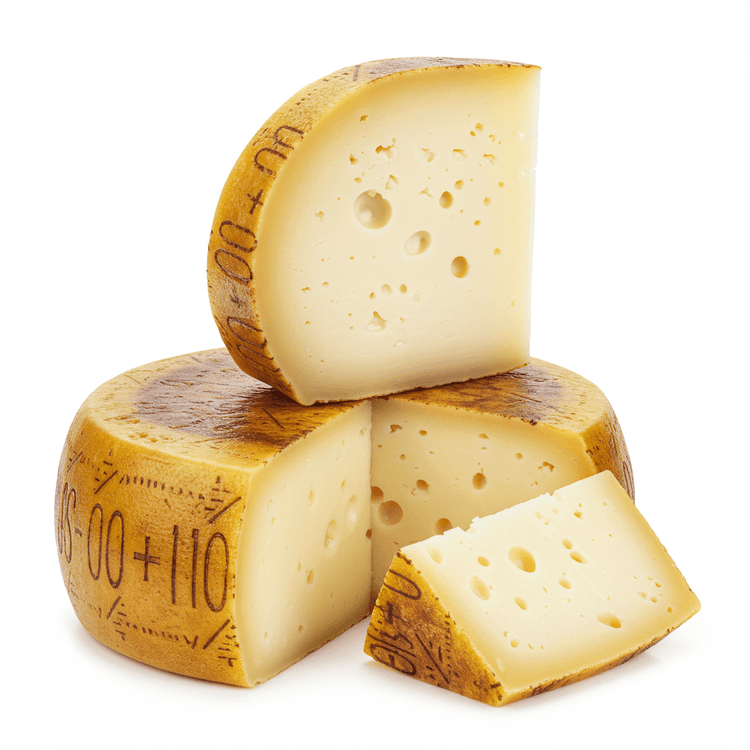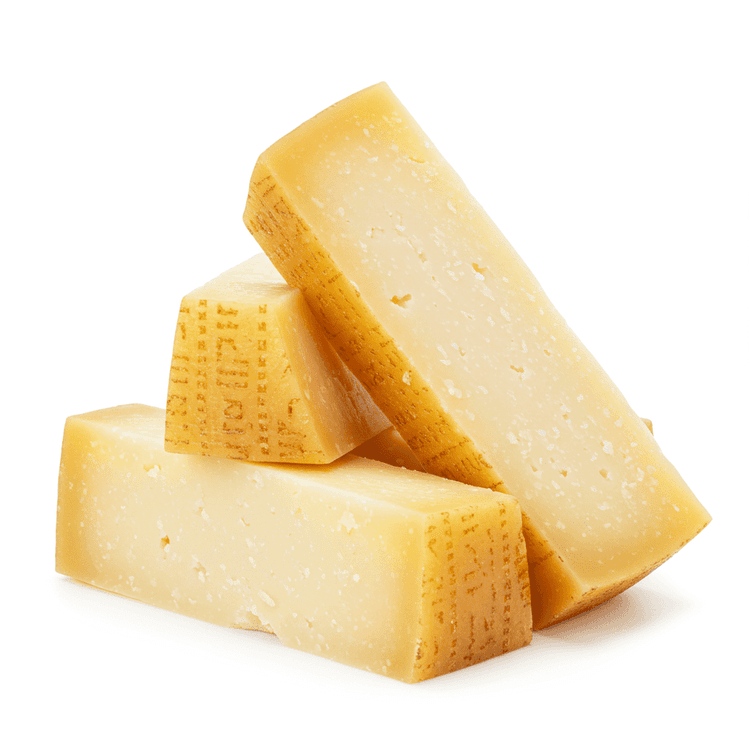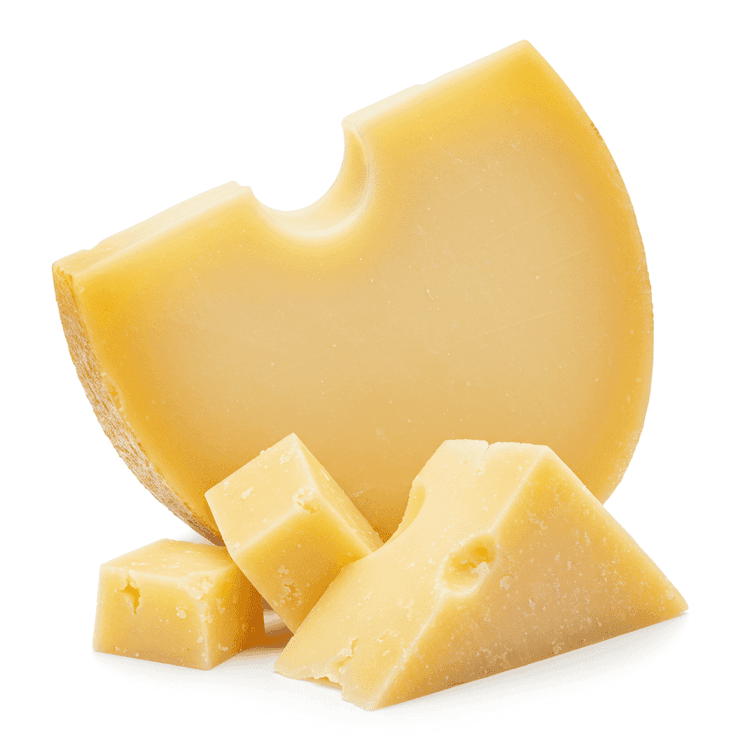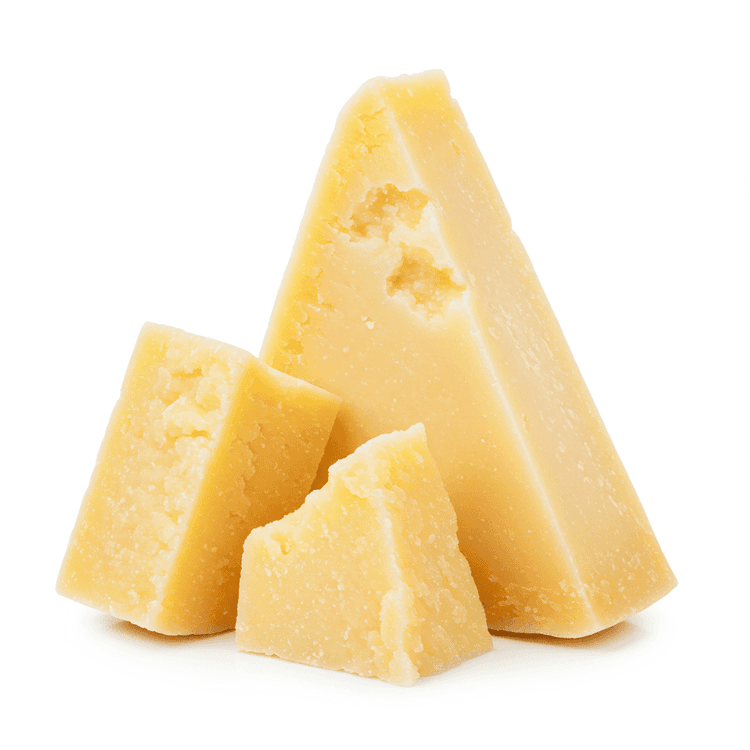
Parmesan
Parmesan is a hard, granular cheese originating from Italy. Known for its rich, nutty, and slightly salty flavor, authentic Parmesan cheese boasts a firm, crystalline texture that melts beautifully when cooked. Its pale golden color and distinct aroma make it a prized ingredient in various culinary applications. Aged Parmesan cheese delivers the most complex and intense flavor, making it a favorite among cheese connoisseurs.
Common Uses
- Grating Parmesan cheese over pasta dishes provides a savory and umami-rich finish, enhancing the overall flavor profile. - Shaving Parmesan cheese into salads adds a sharp and salty bite, complementing leafy greens and other fresh vegetables. - Incorporating grated Parmesan cheese into risotto imparts a creamy texture and nutty flavor, creating a decadent and comforting dish. - Using Parmesan cheese rinds to flavor soups and stocks adds depth and complexity, infusing the broth with a savory essence. - Baking Parmesan cheese crisps offers a crunchy and flavorful snack or garnish, perfect for adding texture to various dishes. - Blending Parmesan cheese into pesto sauces creates a rich and flavorful base, complementing fresh basil and other herbs.
Nutrition (per serving)
Nutrition (per serving)
Calories
431.0kcal (21.55%)
Protein
38.9g (77.82%)
Carbs
4.1g (1.49%)
Sugars
0.0g
Healthy Fat
9.1g
Unhealthy Fat
19.6g
% Daily Value based on a 2000 calorie diet
Nutrition (per serving)
Calories
431.0kcal (21.55%)
Protein
38.9g (77.82%)
Carbs
4.1g (1.49%)
Sugars
0.0g
Healthy Fat
9.1g
Unhealthy Fat
19.6g
% Daily Value based on a 2000 calorie diet
Health Benefits
- Good source of calcium for strong bones and teeth.
- Provides protein, essential for muscle building and repair.
- Contains vitamin A, important for vision and immune function.
- Offers B vitamins, which support energy metabolism.
- Rich in phosphorus, which works with calcium to build bones.
- Contains conjugated linoleic acid (CLA), a fatty acid associated with potential health benefits.
Chefadora AI is here.
Experience smarter, stress-free cooking.
Storage Tips
Parmesan cheese should be stored properly to prevent it from drying out and losing its flavor. For a wedge of Parmesan, wrap it tightly in parchment paper and then in plastic wrap or place it in an airtight container. Store in the refrigerator's cheese drawer or the coldest part. Grated Parmesan should be stored in an airtight container in the refrigerator. Properly stored, Parmesan can last for several weeks or even months.
Marnirni-apinthi Building, Lot Fourteen,
North Terrace, Adelaide, South Australia, 5000
Australia
